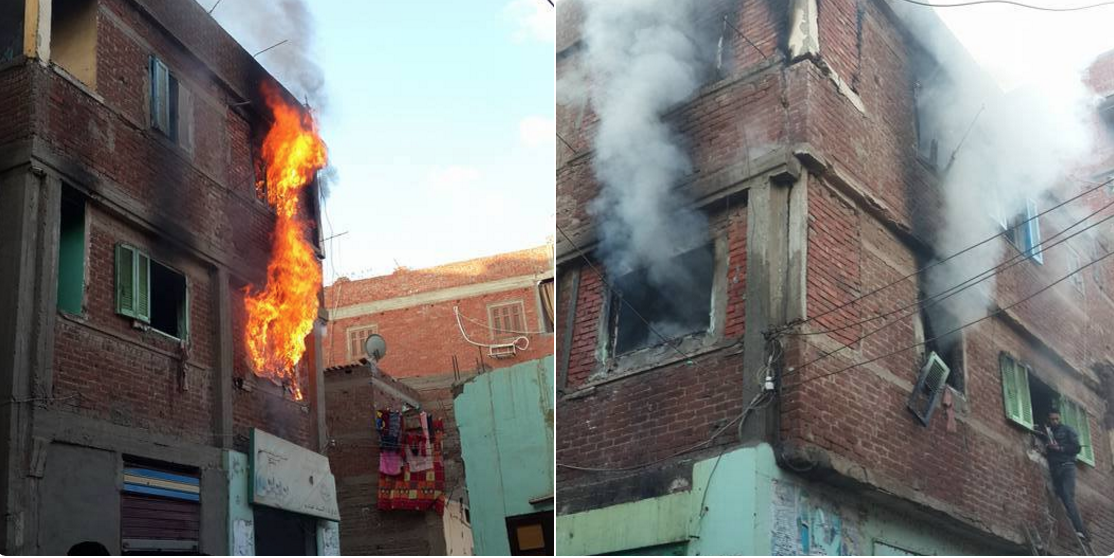فيديو لحرق قوات الجيش والشرطة بيوت معتقلين في قرية البصارطة بدمياط صباح اليوم#الشرطة_تحرق_بيوت_المعتقلين
Posted by Amr Salama El-Qazaz on Monday, March 21, 2016
Egyptian police have reportedly set fire to residential buildings in El Basarta, located in the coastal province of Damietta during an early morning raid on Monday.
Video footage posted on social media sites, which could not be independently verified by Egyptian Streets, shows flames of fire coming out of the building’s windows.
According to the group Egyptian Coordination for Rights and Freedoms, security forces raided and burned the home of Maryam Turk, who has been detained since May of last year, after participating in anti-government protests.
The Revolutionary Coalition for Egyptian Women has called for the release of Turk and other women held in Egyptian prisons for what it describes as “political” reasons. The group has described the conditions Turk endures in prison as “inhumane.”
Homes belonging to other detainees were also set ablaze in the raid, according to Egyptian Coordination for Rights and Freedoms.
The provincial security chief of Damietta, Faisal Dewidar, has however denied that security forces set fire to the residential buildings.
Following the raid, Turk’s husband, Mohammed Adel Balboula, posted photos of their burned out building on his Facebook page, writing, “You have already killed our loved ones – how could setting fire to our houses harm us?”
Egypt’s Interior Ministry has yet to comment on the incident.
The alleged house burnings come amid heightened tensions between Egypt’s civilians and police force. Last month, 10.000 doctors gathered to protest against police abuse following an incident where policemen assaulted doctors in a teaching hospital in Cairo. In a separate incident, a policeman shot and killed a driver in the capital’s Al-Darb Al-Ahmar district following a heated argument between the two.
Meanwhile, Egypt’s government has recently vowed to reform the country’s police force by enforcing new laws to curb its authority and regulate individual policemen’s daily interactions with citizens.







Comments (0)